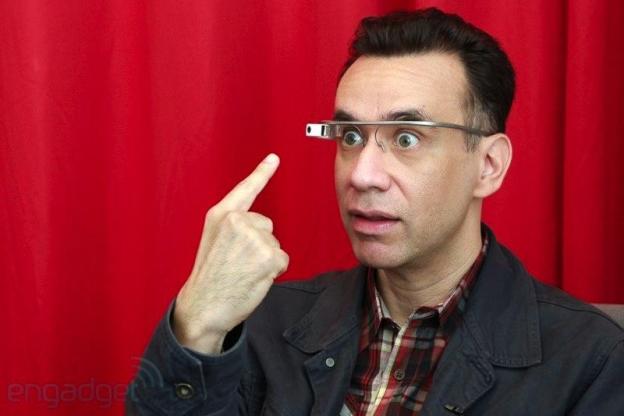
A few weeks ago, a certain fictional tech correspondent made rounds on the Internet after appearing on Saturday Night Live‘s Weekend Update to demonstrate just how amateurish Google Glass is. Yep, we’re talking about Fred Armisen as Randall Meeks who, despite not having worn the Glass before, co-wrote the viral sketch that claimed the Glass has poor voice recognition and may expose to everyone that you’re watching porn in public. Engadget scored an interview with Fred himself to let him try on the authentic Google Glass, and let’s just say his experience in real life is not a far departure from the sketch… except that Fred is way funnier in the fake Glass than the real deal.
Just like the SNL parody, the Glass has pretty weak voice recognition. The device had trouble picking up Fred’s “Okay Glass” prompts and instead gave him directions to the Glass House Tavern bar in New York’s Theater District. Fred was also able to scroll through Engadget’s Tim Stevens’ emails, looking more indiscreet than ever. If anything, Fred may be more humorous in the SNL sketch, but Glass’s struggle to perform is equally awkward. “Maybe for regular people having a coffee it might not be ideal, but for a worker working on something, or someone driving, it probably is something that could be helpful,” Fred suggests, before joking that he’d rather steal the Glass than pay for it.
To be fair, every single review or hands-on you’ve read about the Glass thus far refers to Google’s Explorer Edition of the device. The consumer version, set to hit the market some time next year, should hopefully correct all the issues that are being reported. That, or we can expect SNL to give us another Weekend Update on other awkward situations you can get into with this dorky wearable tech.


